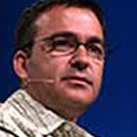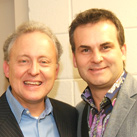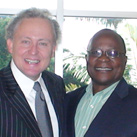The Evidences of A Saved Life: Acts Series #37

From the 21st chapter of Acts on to the conclusion, we have the series of circumstances which brought the Apostle Paul from the city of Jerusalem to the city of Rome. Paul had a great desire to go to Rome. The Lord made it possible for him to do so. When Paul came to Jerusalem, some of the Believers pointed out to him that some were accusing him of violating the Old Testament law and teaching contrary to the Old Testament Scriptures. So, they have asked him to be part of a special ceremony along with some other men. When some of the enemies of the Gospel saw him in the temple, they made a false accusation that he had brought Gentiles into the temple which was a taboo.
 Thus, they grabbed Paul and started beating him and were planning to kill him. The Roman soldiers, from Antonio’s fortress in Jerusalem, had come and rescued Paul from those who were trying to kill him. As he was going up the steps, he asked if he could speak to the people. Keep in mind this was a hostile mob. This is a religious crowd. No people can be any more unkind of hostile or vicious people, than religious people. In Acts 22:1, he is speaking to these religious people.
Thus, they grabbed Paul and started beating him and were planning to kill him. The Roman soldiers, from Antonio’s fortress in Jerusalem, had come and rescued Paul from those who were trying to kill him. As he was going up the steps, he asked if he could speak to the people. Keep in mind this was a hostile mob. This is a religious crowd. No people can be any more unkind of hostile or vicious people, than religious people. In Acts 22:1, he is speaking to these religious people.
I don’t guess there is anything that gets our interest any more than for a person to share with us a personal testimony or a personal experience. Advertisers have long known the value of the personal testimony of a well-known person. We hear commercials. “If you wear this hat like Tiger Woods, you can be a great golfer.” You run out and buy the hat and you are supposed to go out and shoot a 62. We understand the value of personal testimony.
One of the greatest evidences for the validity and the reality of the Christian faith is the testimony of a changed life. When a person’s life has been changed by the power of Jesus Christ, and they testify to that fact it becomes powerful. There was a preacher who had been challenged to a debate by an Atheist. He said to the Atheist, “I’ll be glad to debate you, but here are my terms. You bring some folks with you whose lives have been changed for the better by your belief in Atheism. Then, for every person who is better because of their Atheism, I will bring 10 people who have testified to the fact that their lives are better because they have been changed by the Lord Jesus Christ.” He never heard again from the Atheist. The debate never occurred.
A number of years ago in England there were two brilliant antagonists of the Christian faith. Gilbert West was one and Lord Lyttleton was the other. They agreed that there were two facts, if they could discredit them, they would discredit the Christian faith. One of them was the resurrection of the Lord Jesus Christ. The other was the conversion of the Apostle Paul. They agreed they would each take one. West took the resurrection and Lyttleton took the conversion of Paul. They would do thorough research to discredit both of those claims. They would come back and share the results of their research.
They did return sometime later and made a startling discovery. As a result of individual, separate research both had become Christians. Lyttleton who tried to disprove the conversion of Saul wrote these words, “The conversion of Paul is of itself a demonstration sufficient to prove Christianity to be a divine revelation.”
 The Apostle Paul defended the Christian faith. In fact, he says in verse 1, “My defense.” The word, defense, is the word from which we get our word, apology. One division of Christian study is apologetics—the defense of the faith—giving the evidences for the Christian faith. Paul was quite capable of giving all of the evidences for the reality of the Christian faith. He could have given the historical evidences because he did write that Christ died. He could have told the history of it. He could have given the doctrinal evidences because he wrote, “Christ died for our sins.” He could have given the biblical evidences because he said, “Christ died for our sins according to the Scriptures.” He could have given all of the biographical evidences. He could have given the testimony of the others who had seen the living Lord.
The Apostle Paul defended the Christian faith. In fact, he says in verse 1, “My defense.” The word, defense, is the word from which we get our word, apology. One division of Christian study is apologetics—the defense of the faith—giving the evidences for the Christian faith. Paul was quite capable of giving all of the evidences for the reality of the Christian faith. He could have given the historical evidences because he did write that Christ died. He could have told the history of it. He could have given the doctrinal evidences because he wrote, “Christ died for our sins.” He could have given the biblical evidences because he said, “Christ died for our sins according to the Scriptures.” He could have given all of the biographical evidences. He could have given the testimony of the others who had seen the living Lord.
But on this occasion what Paul does is what you and I have the opportunity to do. He gives the personal evidence because he gives his own personal testimony. If you want to wrap up this personal testimony of Paul in three words, I think his words would be—”I’ve been changed.” That is the testimony of a person who has come to Christ—I have been changed. If you are not a changed person, then you are probably not a converted person. The Bible says, “If any man be in Christ, he is a new creation. Old things are passed away, behold all things are become new.” An experience with the Lord Jesus Christ changes your life and you should be able to give a testimony to it. What life was before you met Christ—what life is after you meet Christ.
If you came to know the Lord as a child, there may not be a dramatic change in your life, but yet there is a difference. If you have come to Christ, you have been changed from an unforgiven sinner to a forgiven sinner. You have been changed from a child of the devil to a child of the Lord. When you come to Christ, you have been changed.
I. We Need Our View Changed About Ourselves
 He says in verse 3 and following, “I am verily a man which am a Jew.” He talks about his life BC—before Jesus and his life AD—after Jesus. He pulls out his biographical sketch and begins to enumerate all of the things he had on his biographical sketch before he met the Lord Jesus Christ. He identifies himself with the people. He says at the end of verse 3, “As you all are this day.” He is saying –I used to be just like you. Then, he begins to go over the details and check off the different things about his life that he thought was an advantage before he met the Lord Jesus Christ. He was proud of it. He was proud of his race. You should be proud of your race. You should be grateful for whatever race you are. God put you in that race and God has a purpose and a plan. If you came from a good family, you should be grateful and thankful. He was proud of his resources. He said, “I came from Tarsus.” That means he had been in an atmosphere—a climate of culture. He said, “I was brought up at the feet of Gamaliel,” who was the most prominent religious professor of his day.
He says in verse 3 and following, “I am verily a man which am a Jew.” He talks about his life BC—before Jesus and his life AD—after Jesus. He pulls out his biographical sketch and begins to enumerate all of the things he had on his biographical sketch before he met the Lord Jesus Christ. He identifies himself with the people. He says at the end of verse 3, “As you all are this day.” He is saying –I used to be just like you. Then, he begins to go over the details and check off the different things about his life that he thought was an advantage before he met the Lord Jesus Christ. He was proud of it. He was proud of his race. You should be proud of your race. You should be grateful for whatever race you are. God put you in that race and God has a purpose and a plan. If you came from a good family, you should be grateful and thankful. He was proud of his resources. He said, “I came from Tarsus.” That means he had been in an atmosphere—a climate of culture. He said, “I was brought up at the feet of Gamaliel,” who was the most prominent religious professor of his day.
He was proud of his religion. He tells us about it. He says he was zealous toward God and was taught according to the perfect manner of the law. Paul was a meticulous scholar. He had a brilliant mind, and he was the leading pupil of this great teacher, Gamaliel. In fact, some people say he was destined to become the number one religion professor in that day.
He has all these religious credentials. However, none of those kinds of things really change your life. None of those things can really save you. Mere religion won’t save you. Being brought up in a good family won’t save you. You have to be born again. You have to know Christ as your personal Savior. All of those things that he had held on to before the Lord Jesus Christ, he came to understand later that they really don’t save you. The Bible says, “Not by works of righteousness which we have done, but according to his mercy hath he saved us.” The Bible says, “For by grace are you saved, through faith, and not of works lest any man should boast.”
He talks about his life BC—before Jesus. Then, he talks about his life AD—after Jesus. He tells about that trip he made to Damascus, 150 miles away from Jerusalem. It would have been a week’s journey probably for him to go that far. He had obtained letters of permission to go all the way up to Damascus to find Christians and persecute and kill them. You can almost see him, can’t you? He rushes out of the city of Jerusalem. He rushes through the Damascus gate, out in the countryside, past Golgotha. He shakes his spear in the face of the crucified one. He’s going to blot out this religion. He now begins to tell us what happened to him. He tells us where he was—on the road to Damascus. He tells us what time it was—12:00. He tells us what happened. In Acts 22:6, he said he was headed up that way about noon and, “Suddenly there shown a light from heaven, a great light all around him.” In another place, he calls it a light above the brightness of the sun.
Now, on this road to Damascus Pau has had a life-changing, soul-saving experience. He sees this great light from heaven. Of course, we know what this great light is. This is nothing more than the shining from the face of the risen, resurrected, glorified Lord Jesus Christ. He is indeed above the brightness of the sun. He is indeed the fairest of the fair. He is indeed the rose of Sharon and the lily of the valley. He is indeed the bright and the morning star. He saw Jesus on that Damascus Road. This experience was what qualified him to be an Apostle. You had to have seen the risen Lord Jesus Christ. When he saw that light from heaven, the one who is the light of the world, who brings light into our sin-blinded, darkened lives—when he saw Christ, his religious exhibits just all came crashing down. His religious house came down like a house of cards. He saw how useless and how poor all of it was. In the Book of Philippians, Paul enumerated all of his religious credentials and said basically, “I consider all of those things to be garbage. They are nothing compared to the excellency of knowing the Lord Jesus Christ.”
Word to God that everyone would come to know this Lord Jesus and their lives would be saved. It will change their attitude about themselves. They will have a BC and an AD experience when they come to know the Lord Jesus Christ.
II. We Need Our View Changed About Our Savior
 Paul loves to tell the story of the Damascus Road experience. He tells it three times in the book of Acts and then he touches on it a couple of times in his letters. Paul says in Acts 22:7, that he fell to the ground, and he heard a voice, and it was the voice of the Lord. The Lord was saying unto him, “Why are you persecuting me”? Paul asked two questions. You can see here a change of attitude about the Savior. His first question is in verse 8, “Who art thou, Lord”? That question reveals that he has now changed his attitude about the reality of the Savior. He thought Jesus Christ was an imposter. He thought the Lord was a deceiver. He thought he was a rabble-rouser or some kind of revolutionary. Paul was glad the day they nailed Jesus on the cross and killed him. He thought it was all over. He thought he was dead. However, while he was on the Damascus Road, down in the dirt, he saw this great light from heaven. He says, “Who are you, Lord”?
Paul loves to tell the story of the Damascus Road experience. He tells it three times in the book of Acts and then he touches on it a couple of times in his letters. Paul says in Acts 22:7, that he fell to the ground, and he heard a voice, and it was the voice of the Lord. The Lord was saying unto him, “Why are you persecuting me”? Paul asked two questions. You can see here a change of attitude about the Savior. His first question is in verse 8, “Who art thou, Lord”? That question reveals that he has now changed his attitude about the reality of the Savior. He thought Jesus Christ was an imposter. He thought the Lord was a deceiver. He thought he was a rabble-rouser or some kind of revolutionary. Paul was glad the day they nailed Jesus on the cross and killed him. He thought it was all over. He thought he was dead. However, while he was on the Damascus Road, down in the dirt, he saw this great light from heaven. He says, “Who are you, Lord”?
In Acts 22:8, the Lord says, “I am Jesus of Nazareth, whom you persecute.” He thought Jesus was dead. A lot of people think Jesus is dead today. But he’s not. A lot of people are trying to kill Jesus today, but they can’t. All these articles people write and all these infidels who try to wipe out the Lord Jesus Christ—they’ve been trying for 2,000 years. Jesus Christ is alive today, like He was 2,000 years ago! He’ll be alive a thousand years from now and through all eternity Jesus Christ is the same yesterday, today and forever. We have a living Savior today!
He has come to understand the reality of who Jesus is. He sees that Jesus is the Lord. That’s a very important question for you to decide. You need to decide who Jesus is. Who is this Jesus of Nazareth who spoke to Paul on the Damascus Road? We really don’t have but about four choices.
First, you can say He was just a legend. He never even existed. There is no intelligent, honest scholar anywhere in the world today who believes that Jesus Christ is a legend and that He never existed.
Second, you can say Jesus Christ was a lunatic. Read the writings of the New Testament and read what the Lord Jesus Christ had to say in the New Testament, do you believe that Jesus sounds like a crazy man? Of course not.
Third, you can read about the Lord Jesus Christ and conclude that He was a liar. But when you look at the things Jesus Christ said and the things Jesus Christ claimed He would do, He did everything He said He would do. He fulfilled every prediction that was ever made of the Lord Jesus Christ.
Jesus Christ is not a legend, a lunatic, or a liar. Jesus Christ is the Lord. Every person has to make a decision about Jesus Christ. Is He really who He says He is? That’s the first question.
Now, I want you to look now at this second question he asks in verse 10. “What shall I do, Lord”? This question tells us that he has changed his attitude about the authority of Jesus. Not only Jesus’ reality, but also the authority of the Lord Jesus Christ. What has been going on between Paul and Jesus is this: Paul and Jesus were on a collision course. Paul’s will and Jesus’ will were heading right toward one another. Now, on Damascus Road, they have a collision and Paul’s will is demolished. He now says, “Lord, what do you want me to do”?
Paul has surrendered his will to the Lord Jesus Christ and from now on, he sets out to do whatever Jesus wants him to do. A Christian is someone who has laid aside his or her will and is now interested in doing what Jesus Christ wants them to do.
These are the two great questions of life. Who is Jesus? What does Jesus want you to do? You will spend the rest of your life finding the answer to those two questions. It changed his attitude about Jesus. If you are going to answer these awesome questions, you will have to have a personal experience with Jesus Christ yourself. That’s the greatest evidence you will ever have. He is the Savior, but you won’t know He’s the Savior until He becomes your Savior. He is a friend, but you won’t know He’s a friend until He becomes your friend. He is the Lord, but you won’t know He’s the Lord until you have bowed the knee and yielded to His lordship in your personal life. It has to be personal.
Paul’s testimony is a testimony to the fact that an experience with Jesus Christ has changed his attitude about himself and the Savior. Furthermore, a personal experience with Jesus Christ in Paul’s life changes his attitude toward—
III. We Need Our View Changed About Our Society
 When Paul was saved, his attitude changed toward people. In Acts 22:11, we learn that Paul was blinded by the light. They lead him into the city of Damascus. He went in far different than he had planned to go in. He planned on going in as the mighty conqueror arresting Christians. Now, he comes in blinded, but a changed man in his heart.
When Paul was saved, his attitude changed toward people. In Acts 22:11, we learn that Paul was blinded by the light. They lead him into the city of Damascus. He went in far different than he had planned to go in. He planned on going in as the mighty conqueror arresting Christians. Now, he comes in blinded, but a changed man in his heart.
As you may recall, Paul has an experience with Ananias. The Lord says to him through Ananias in verse 15, “For thou shalt be his witness unto all men of what thou hast seen and heard.” We have to remember who Paul was and remember what kind of person Paul was. Paul was an angry man. Did you ever see anybody who was just angry? Have you ever seen so much anger as we have in our society today? You read about road rage. They are mad at the world. They are mad at you or anybody who is around them. Paul was an angry man. The truth of the matter is—he didn’t love people—he loathed people. In fact, one time he wrote about it in I Thessalonians 2, when he expressed being contrary to all men. The word, contrary, is used in Acts 27:4 about a storm where it says the winds were contrary. He was like an angry storm. You didn’t want to get around him.
There is so much hatred in our world today. Hatred between races. Hatred between people groups in our country. Hatred between religions. So much hatred!
There was man named Carl Panzram who had murdered 22 people. When he was tried and condemned, his words to the judge were these, “I wish the whole human race had one neck and I had my hands around it.”
Now, Paul, instead of loathing people, loves people. All of a sudden, this angry man became a sweet man. He had come in contact with the Lord Jesus Christ and a love that he had never experienced in all of his life before. When we come to know Jesus Christ as our Savior, we come in contact with a love like we have never known before. The most overwhelming truth to me in all the Bible is that God loves us. Think about it. God loves us, unlovely though we are; unworthy though we are; God loves us. God loves you. Think about it.
One of my favorites is George Foreman. Every time I see that little hamburger grill, I believe everyone should have one. George used to be an angry man. I don’t know if you ever saw George fight back in his early years. But he was such an angry young man. Now you see George and every time you see him, he has a big smile on his face. You say, “He ought to have a smile with all those millions he’s made.” No, that’s not what put the smile on George’s face. After one of his fights, when he lost to Jimmy Young, George Foreman sat there in his locker room after it was over and buried his bloody face in his hands and the Lord Jesus Christ spoke to him and he was saved. George, by his own testimony, says when he was saved, he started loving everybody. He started hugging people and telling them he loved them. From that day to now, George has a smile on his face. Jesus puts love in your heart for people.
The Lord told Paul he was going to be His witness to all people. Paul witnessed to all classes of people. He witnessed to the rich, and he witnessed to the poor. He witnessed to the high and mighty, and he witnessed to the low and down and out. If we have been changed by Jesus Christ and if His love has overwhelmed our heart, nobody is beyond our reach of telling them about the lovely Jesus Christ.
Paul witnessed not only to all classes; he witnessed to all cultures. You and I must witness to all cultures—all kinds of people. We need to reach people with obnoxious lifestyles. They don’t need to be hated. They need to be loved. They have been sold a bill of goods by a hedonistic death culture. They have been promised bread, and they have been given a stone. They need somebody who can give them some reality. We need to tell them about the love of the Lord Jesus Christ.
 We are to love all classes of people and love all cultures of people. Yet, we have to love all countries of people. All people everywhere need to know about this wonderful love of the Lord Jesus. There are people all over this world who don’t know that God loves them. They are filled with fear because they don’t know God loves them.
We are to love all classes of people and love all cultures of people. Yet, we have to love all countries of people. All people everywhere need to know about this wonderful love of the Lord Jesus. There are people all over this world who don’t know that God loves them. They are filled with fear because they don’t know God loves them.
We can see violent groups of people on television. We can see people all over the world who are filled with so much hatred and so much animosity. All they need is the love of Jesus. They just need to know that Jesus loves them, and that Jesus can save their lives.
There was a young boy who was standing in a crowd, as an infidel was giving a speech, making fun of Jesus and the Christian life. The man made fun of Jesus changing the water into wine. He said: “Who can believe that? Nobody can take water and turn it into wine. That’s impossible. Miracles don’t happen. You can’t change water into wine.”
He made his big speech and had a few people applaud. Then, the young boy raised his hand and said, “Sir, could I say a word? I don’t know a whole lot about the Bible, and I have never heard or read about Jesus changing water into wine. But sir, let me tell you what happened at our house. My daddy was a drunk. My daddy would come home and beat my momma every night and kick us around. My daddy went to a church in our community and gave his heart to the Lord Jesus Christ. My daddy is a changed man. I don’t know whether He changed the water into wine or not, but I know this. At my house, Jesus changed wine into clothes on my back and food on our table and furniture in our house.”
Back To Blog




